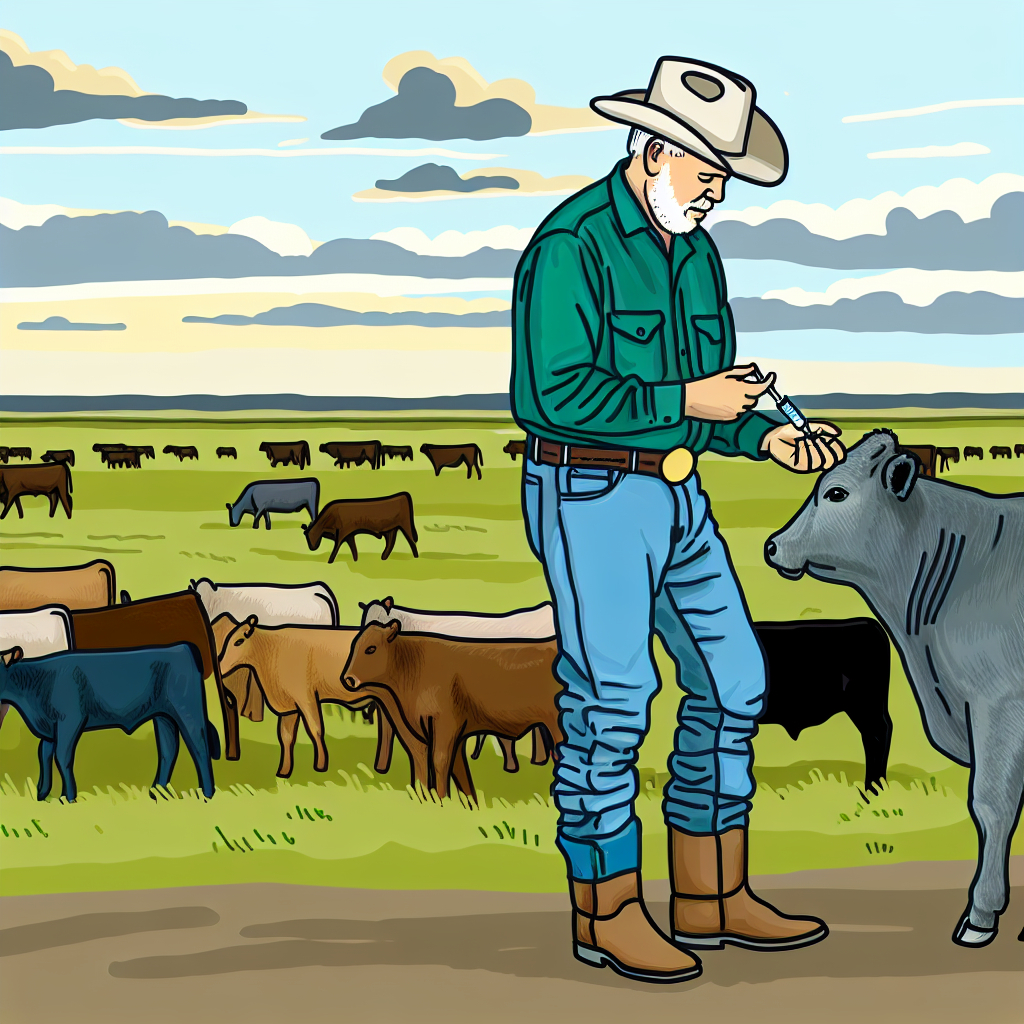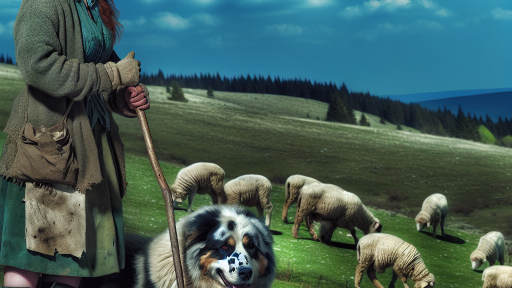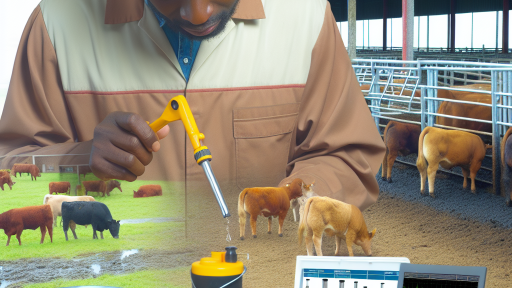Introduction to Beef Cattle Vaccination
Importance of Vaccination
Vaccination plays a crucial role in beef cattle health management.
It helps prevent the spread of diseases affecting cattle.
Moreover, vaccination reduces overall herd health risks.
This proactive approach saves money in the long run.
Healthy cattle lead to increased productivity and profitability.
Benefits of Vaccination
Vaccinated cattle experience fewer disease outbreaks.
This leads to lower mortality rates among livestock.
Furthermore, vaccinations improve weight gain in healthy cattle.
They also enhance feed efficiency and reproductive performance.
Additionally, vaccinations help maintain beef quality standards.
Common Vaccines for Beef Cattle
Several vaccines are essential for beef cattle.
These include vaccines for viral and bacterial infections.
Additionally, vaccines targeting parasites are also important.
Producers often work with veterinarians to create vaccination programs.
Creating a Vaccination Schedule
A vaccination schedule should be tailored to each herd.
Transform Your Agribusiness
Unlock your farm's potential with expert advice tailored to your needs. Get actionable steps that drive real results.
Get StartedIt should consider factors like age, health status, and environment.
Cattle should receive core vaccinations early in life.
Subsequent boosters are critical to ensure long-term immunity.
Regular updates to the schedule help manage emerging diseases.
Common Vaccines for Beef Cattle
Importance of Vaccination
Vaccination is crucial for maintaining cattle health.
Healthy cattle contribute to improved productivity and economic stability.
Moreover, vaccinations help prevent the spread of diseases within herds.
Types of Vaccines
Beef cattle vaccines fall into two main categories: modified live and killed vaccines.
Modified live vaccines contain weakened pathogens.
Killed vaccines consist of inactivated pathogens and pose no risk of disease.
Both types stimulate immune responses effectively.
Common Modified Live Vaccines
- IBR (Infectious Bovine Rhinotracheitis) vaccine
- BVD (Bovine Viral Diarrhea) vaccine
- BRSV (Bovine Respiratory Syncytial Virus) vaccine
Common Killed Vaccines
- Leptospirosis vaccine
- Clostridial vaccine
- Respiratory tract disease vaccines
Purpose of Vaccination
Vaccines help prevent specific diseases in beef cattle.
For instance, IBR vaccines reduce respiratory disease incidents.
Similarly, clostridial vaccines protect against severe intestinal infections.
Additionally, vaccinations reduce treatment costs by preventing illness.
Vaccination Schedules
Creating a vaccination schedule is essential for herd health management.
Cattle are typically vaccinated at crucial life stages, such as weaning.
Regular follow-up vaccinations ensure long-lasting immunity.
Consultation with Veterinarians
Always consult with a veterinarian when planning vaccination schedules.
Veterinarians can provide tailored recommendations based on herd health.
They also assess local disease prevalence, ensuring effective vaccination strategies.
Age and Weight Considerations in Vaccination Schedules
Importance of Age in Vaccination
The age of beef cattle plays a critical role in their vaccination schedules.
Younger calves require specific vaccines to develop immunity.
Additionally, vaccinations help prevent diseases common in younger animals.
Showcase Your Farming Business
Publish your professional farming services profile on our blog for a one-time fee of $200 and reach a dedicated audience of farmers and agribusiness owners.
Publish Your ProfileFurthermore, age-related immunity responses vary significantly.
Calves often need initial vaccines as early as two months old.
This early vaccination creates a foundation for lifelong immunity.
Weight Considerations
Weight also significantly impacts a cattle’s vaccination schedule.
Lighter cattle might need lower doses of certain vaccines.
Veterinarians often adjust protocols based on weight to prevent adverse reactions.
Consequently, monitoring weight regularly is essential for farm management.
Recommended Vaccination Timing
Vaccinating at the appropriate age promotes effective immunity.
Typically, calves receive their first vaccinations between two and six months.
Furthermore, boosters follow according to the vaccine label instructions.
Consultation with veterinary professionals enhances the effectiveness of your schedule.
Best Practices for Vaccination
- Maintain thorough vaccination records for each animal.
- Regularly review and update vaccination protocols.
- Ensure proper handling and storage of vaccines.
Adopting these best practices will optimize your herd’s health.
Find Out More: Automating Systems In Livestock Facilities
Annual vs. Biannual Vaccination: What You Need to Know
Understanding the Basics
Vaccination schedules can vary significantly for beef cattle.
Many producers choose between annual and biannual vaccination plans.
Each option has its benefits and drawbacks.
Annual Vaccination Overview
Annual vaccinations are typically easier to manage.
This schedule suits operations with larger herds.
Producers can minimize labor and administration costs.
Also, fewer handling events can reduce stress on animals.
Vaccinating once a year allows for better planning.
Benefits of Annual Vaccination
- Less frequent handling reduces stress for cattle.
- Cost-effective for larger operations with many animals.
- Streamlined schedule aligns with seasonal breeding cycles.
Drawbacks of Annual Vaccination
Some diseases may require more frequent vaccinations.
Annual schedules may leave gaps in immunity for certain pathogens.
Increased risk of outbreaks could occur in higher-stress conditions.
Biannual Vaccination Overview
Biannual vaccination offers a different approach.
This plan provides vaccinations twice a year.
It can enhance immunity coverage for certain diseases.
Producers with smaller herds often find this approach beneficial.
Benefits of Biannual Vaccination
- Provides broader protection by covering more diseases.
- More frequent contact helps identify health issues early.
- Can adapt easily to specific disease pressures and outbreaks.
Drawbacks of Biannual Vaccination
The increased frequency requires more labor and management.
It may also lead to higher overall costs for smaller operations.
Handling stress might increase due to more frequent events.
Choosing the Right Schedule
Consider various factors when selecting a vaccination plan.
The herd’s size and specific health risks are important.
Consulting with a veterinary professional is crucial.
Producers should evaluate their goals and resources as well.
See Related Content: Key Regulations for Livestock Transport Farmers
Factors Influencing Vaccination Timing
Seasonal Considerations
The season significantly affects the vaccination schedule for beef cattle.
Spring often offers ideal conditions for vaccinations.
During this time, calves are typically younger and healthier.
Vaccinating in spring helps to fortify animals before summer challenges.
Showcase Your Farming Business
Publish your professional farming services profile on our blog for a one-time fee of $200 and reach a dedicated audience of farmers and agribusiness owners.
Publish Your ProfileAdditionally, vaccination in fall prepares herds for winter vulnerabilities.
Impact of Stress on Vaccination
Stress levels play a crucial role in vaccination effectiveness.
Handling and transport can elevate stress in cattle.
It is vital to minimize stress during vaccination periods.
Calmer animals show better responses to vaccines.
Farmers should consider the timing of routines to reduce stress factors.
Health Status of the Herd
The overall health of the cattle influences vaccination schedules.
Sick animals may not respond well to vaccines.
Regular health assessments can identify candidates for vaccination.
Vaccines are more effective when given during peak health periods.
Farmers should monitor health trends to adjust vaccination timing appropriately.
Gain More Insights: Sustainable Exotic Livestock Practices

Combination Vaccines: Pros and Cons for Herd Health
Benefits of Combination Vaccines
Combination vaccines simplify vaccination protocols for beef cattle.
This makes it easier for ranchers to keep track of treatments.
Moreover, they reduce the total number of injections required.
Fewer injections minimize stress on the animals.
Additionally, administering multiple vaccines at once can save time and labor costs.
Protection Against Multiple Diseases
Combination vaccines offer protection against various diseases in one shot.
This enhances herd immunity more efficiently.
For instance, a single vaccine can target both infectious bovine rhinotracheitis and bovine viral diarrhea.
Thus, ranchers can provide broad-spectrum protection for their cattle.
Potential Drawbacks of Combination Vaccines
While combination vaccines have many benefits, they also have some downsides.
One concern is the potential for increased side effects.
Some cattle may react negatively to multiple antigens at once.
In some cases, identifying the specific cause of an adverse reaction can be challenging.
Effectiveness and Monitoring
The effectiveness of combination vaccines can vary by product and manufacturer.
It is crucial to monitor response rates within the herd.
Regular evaluations help ensure that the vaccines are performing as expected.
Furthermore, ranchers should stay informed about new vaccine developments and guidelines.
Consultation with Veterinarians
Before implementing a combination vaccination schedule, consultation with a veterinarian is essential.
A veterinarian can provide tailored advice based on herd health and local disease prevalence.
This guidance can help ranchers make informed decisions about their vaccination practices.
The right combination vaccine strategy can significantly impact herd health.
Find Out More: Handling and Transporting Exotic Animals Safely
Record Keeping: How to Maintain Effective Vaccination Logs
The Importance of Record Keeping
Accurate record keeping is crucial for successful cattle vaccination programs.
It helps farmers track vaccination schedules effectively.
Additionally, it ensures compliance with health regulations.
Recommended Tools for Record Keeping
Farmers can use various tools for maintaining vaccination logs.
Digital software offers easy tracking and organization.
Alternatively, paper logs can work for those who prefer traditional methods.
Showcase Your Farming Business
Publish your professional farming services profile on our blog for a one-time fee of $200 and reach a dedicated audience of farmers and agribusiness owners.
Publish Your ProfileBoth options should allow for clear documentation of vaccinations.
Key Features of Digital Solutions
Many digital record-keeping solutions provide automated reminders.
Additionally, they allow easy data sharing with vets.
Look for programs that integrate with existing farm management software.
Advantages of Paper Logs
Paper logs provide simplicity and ease of use.
They do not require technical skills or devices.
However, backups are essential to prevent data loss.
What to Record in Vaccination Logs
Maintaining comprehensive logs requires attention to detail.
Always record the date of vaccination for each animal.
Note the type of vaccine used and its lot number.
Additionally, include the veterinarian’s name who administered the vaccine.
Tracking Animal Information
Each log should contain individual animal identifiers.
This makes it easier to track vaccinations over time.
Consider using tags or RFID for effective tracking.
Regular Reviews and Updates
Setting a schedule for reviewing vaccination records proves beneficial.
This helps identify any gaps in vaccination schedules.
Moreover, update logs promptly after each vaccination.
Ensuring Compliance with Regulations
Familiarize yourself with local veterinary regulations.
Each region may have specific documentation requirements.
Adhering to these can prevent legal issues and improve herd health.
Benefits of Effective Record Keeping
Good record-keeping practices enhance herd health management.
It allows for informed decision-making regarding treatments.
Furthermore, it facilitates easier communication with veterinarians.
Maintaining effective logs supports the health and productivity of your cattle.
Consulting with a Veterinarian
Importance of Professional Guidance
Consulting a veterinarian is crucial for cattle health management.
Veterinarians provide expert knowledge on vaccination schedules.
They can address specific health concerns for your herd.
Additionally, they ensure compliance with local regulations.
Identifying When to Seek Help
Always consult a veterinarian during vaccination planning.
Contact them if there are any unusual cattle behaviors.
Also, reach out when new diseases affect local herds.
Furthermore, seek advice when introducing new cattle to your farm.
How to Prepare for the Meeting
Prepare a list of questions before your appointment.
Include questions about specific vaccines and schedules.
Gather any relevant herd health records for the vet.
Provide information about your farm’s history and practices.
Choosing the Right Veterinarian
Select a veterinarian experienced in cattle care.
Look for recommendations from other local farmers.
Evaluate their approach to herd health management.
Additionally, ensure they are available for emergency situations.
Showcase Your Farming Business
Publish your professional farming services profile on our blog for a one-time fee of $200 and reach a dedicated audience of farmers and agribusiness owners.
Publish Your ProfileAdditional Resources
Guide for the Care and Use of Laboratory Animals, 8th edition …
Vaccination Management of Beef Cattle: Delayed Vaccination and …




